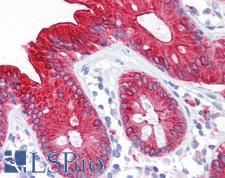Login
Registration enables users to use special features of this website, such as past
order histories, retained contact details for faster checkout, review submissions, and special promotions.
order histories, retained contact details for faster checkout, review submissions, and special promotions.
Forgot password?
Registration enables users to use special features of this website, such as past
order histories, retained contact details for faster checkout, review submissions, and special promotions.
order histories, retained contact details for faster checkout, review submissions, and special promotions.
Quick Order
Products
Antibodies
ELISA and Assay Kits
Research Areas
Infectious Disease
Resources
Purchasing
Reference Material
Contact Us
Location
Corporate Headquarters
Vector Laboratories, Inc.
6737 Mowry Ave
Newark, CA 94560
United States
Telephone Numbers
Customer Service: (800) 227-6666 / (650) 697-3600
Contact Us
Additional Contact Details
Login
Registration enables users to use special features of this website, such as past
order histories, retained contact details for faster checkout, review submissions, and special promotions.
order histories, retained contact details for faster checkout, review submissions, and special promotions.
Forgot password?
Registration enables users to use special features of this website, such as past
order histories, retained contact details for faster checkout, review submissions, and special promotions.
order histories, retained contact details for faster checkout, review submissions, and special promotions.
Quick Order
PathPlusTM CEA / Carcinoembryonic Antigen Antibodies
Carcinoembryonic (CEA / mCEA / pCEA) antigen includes a large class of proteins such as CEACAM5 that are have high expression in a variety of cancers. The degree of expression of CEA is correlated with tumor stage, with particularly pronounced levels in well-differentiated adenocarcinomas relative to early tumors. Staining is observed in normal epithelial cells of the colon, granulocytes, gallbladder, hepatocytes, prostate, and small intestine goblet cells, as well as thyroid and C cells. Positive staining has been observed in cancers of the bile duct, bladder, cervix, cholangiocarcinoma, colorectal cancer, endometrium, stomach, liver, lung adenocarcinomas, ovary, pancreas, salivary gland, medullary thyroid carcinoma, and others. Staining is expected to be membranous and cytoplasmic.
References: Experimental Cell Research 324. 2014 June. (2):115–23, DOI:10.1016/j.yexcr.2014.04.007; Current Oncology (Toronto, Ont.). 2014 Feb. 21 (1):e1-7, PMID: 24523606; Med Arch. 2013 Dec;67(6):397-401, PMID: 25568506
1 PathPlusTM Antibody

☰ Filters
Products
Antibodies
(1)
Type
Primary
(1)
Target
CEA / Carcinoembryonic Antigen
(1)
Reactivity
Human
(1)
Application
IHC
(1)
IHC-Fr
(1)
IHC-P
(1)
WB
(1)
Flo
(1)
ICC
(1)
Host
mouse
(1)
Product Group
PathPlus Cancer
(1)
PathPlus Cancer Pathology
(1)
Isotype
IgG1
(1)
Clonality
monoclonal mc
(1)
Clone
PARLAM 4
(1)
Format
Unconjugated
(1)
Publications
No
(1)

Cancer Pathology
Cancer
CEA / Carcinoembryonic Antigen Mouse anti-Human Monoclonal (PARLAM 4) Antibody
Human
Flo, ICC, IHC, IHC-Fr, IHC-P, WB
Unconjugated
50 µg/$375
Viewing 1-1
of 1
product results











